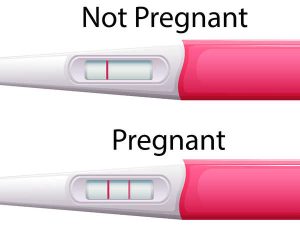Infertility is a condition that affects many couples who are trying to conceive a child. It is defined as the inability to achieve pregnancy after 12 months of regular unprotected sexual intercourse. Infertility can have various causes, such as hormonal imbalances, structural problems, genetic factors, environmental factors, or lifestyle factors. Some of these causes can be treated or reversed, while others may require assisted reproductive technologies (ART) such as in vitro fertilization (IVF) or intrauterine insemination (IUI).
One of the most important factors that can influence the success of infertility treatment is the timing of intervention. Early intervention means seeking medical help as soon as possible after experiencing difficulties in conceiving. Early intervention can have several benefits for couples with infertility, such as:
– Improving the chances of natural conception: Some causes of infertility can be corrected or improved with simple treatments such as medication, surgery, or lifestyle changes. For example, ovulation disorders can be treated with fertility drugs that stimulate the ovaries to produce eggs, while endometriosis can be treated with surgery to remove the abnormal tissue growths. By addressing these issues early on, couples may be able to conceive naturally without resorting to ART.
– Preserving the ovarian reserve: The ovarian reserve is the number and quality of eggs that a woman has in her ovaries. The ovarian reserve declines with age and can also be affected by other factors such as smoking, chemotherapy, or ovarian surgery. A low ovarian reserve can reduce the chances of conception and increase the risk of miscarriage and chromosomal abnormalities. By seeking early intervention, couples can avoid wasting time and resources on ineffective treatments and opt for ART that can maximize the use of their remaining eggs.
– Reducing the psychological stress: Infertility can cause a lot of emotional distress and anxiety for couples who are trying to conceive. They may experience feelings of frustration, guilt, anger, sadness, isolation, or hopelessness. These negative emotions can affect their mental health, their relationship quality, and their sexual function. By seeking early intervention, couples can receive professional support and guidance from their doctors and counselors. They can also learn about their options and expectations and make informed decisions about their treatment plan.
– Saving money and time: Infertility treatment can be expensive and time-consuming. Depending on the cause and severity of infertility, couples may need to undergo multiple cycles of medication, surgery, or ART before achieving pregnancy. These procedures can involve high costs for medication, laboratory tests, doctor visits, hospital fees, and travel expenses. They can also take a toll on the couple’s work and personal life. By seeking early intervention, couples can reduce the number of cycles they need to undergo and increase their chances of success per cycle.
Early intervention in infertility is not only beneficial but also recommended by many experts and organizations. The American Society for Reproductive Medicine (ASRM) advises couples to seek medical evaluation if they have not conceived after one year of trying if they are under 35 years old, or after six months of trying if they are over 35 years old. The ASRM also recommends earlier evaluation for couples who have known risk factors for infertility such as irregular periods, pelvic inflammatory disease, previous pelvic surgery, or male factor infertility.
If you are experiencing difficulties in conceiving a child, do not hesitate to seek early intervention from your doctor or a fertility specialist. Early intervention can improve your chances of achieving your dream of parenthood and enhance your overall well-being.






Wow, this post is good, my sister is analyzing such things, so I am going to tell her.
Feel free to surf to my blog: vvip69สล็อต